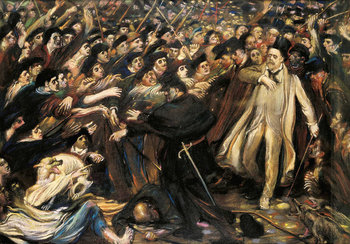
Dumping
A government subsidies farmers to produce a commodity. This causes farmers to produce a large surplus which they end up exporting. The price of the exports is below a reasonable cost for producing the commodity thus causing bankruptcies of farmers who don't receive government subsidies.Price Fixing
There are three pubs in a small town. One sets lower prices and gains most of the customers. Distressed, the other two owners contact the third and set up a meeting. They agree to a minimum price for food items and drinks.Refusal to Deal
A telecom company has a monopoly on internet connections in an area. They also own a television network. They develop a strategy to deny competing television networks with internet services in an attempt to put them out of business.Dividing territories
A country has two dominant breweries. They meet and agree to divide up the country with a monopoly for each in several regions.Tying
A telecom company owns television stations which are profitable due to advertising. They only offer their own stations with a cable TV connection despite customer requests for access to the competition.Protectionism
A country sets up obscure proprietary standards for a wide range of products to make it difficult for foreign exports to comply with local regulations.Patent Misuse
A robotics company buys a patent that is fundamental to all robots and then refuses to license it to any competitors in an attempt to take over the entire industry.Regulations
A telecom company requests that a government enact cumbersome industry regulations that make it almost impossible for small competitors to challenge them.Mergers & Acquisitions
The two largest firms in an industry merge in hopes of creating a monopoly that will enable them to increase prices dramatically without losing business.Group Boycott
A dominant telecom company will only buy critical network equipment if the seller agrees not to sell to their competition. Without access to the equipment, the competition is unable to upgrade their network and compete.| Overview: Anti-Competitive Practices | ||
Type | ||
Definition | A viable attempt to prevent or reduce competition in a market. | |
Related Concepts | Patent MisuseRefusal To Deal | |






























